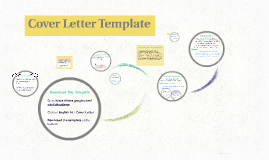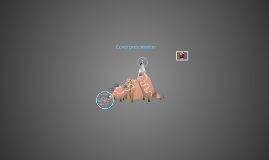Paper Cover Rock
Transcript: Paper Covers Rock Guilt and Responsibilty Timeline Initial Guilt The Incident Internal Conflict Near Confession of Guilt Essay With Underlying Stories Poetic Discomfort Relief Reflecting on Good Times Conclusion Theme of Guilt and Responsibility Chapter 1 Chapter 3 My Opinions Chapter 14 Chapter 9 Chapter 8 Chapter 17 Chapter 6 Stakeholders The novel opens with the three boys Alex, Glenn, and Thomas diving off a cliff into one of the local rivers. When Thomas Broughton dove off the cliff, he never surfaced again. The tragic drowning of Thomas riddled the boys with guilt because they were drinking alcohol when this happened. Alex’s guilt is especially apparent in the prologue when he says “I can still see Thomas’s face, the panic in his eyes as he went under. I was there. I should have done something.” The initial guilt is obvious in the way Alex is thinking. An example is when he says, “After the accident, Thomas's body is carried up to the infirmary on a stretcher, and the whole time Glenn and I are sitting on the bench outside, I'm picturing Thomas's drowned body inside, wrapped in towels.” (Hubbard, 6). This highlights the initial guilt that is just beginning to build inside. In a conversation between Alex and Glenn, Glenn begins to slightly shift the blame onto Thomas himself for being drunk when he says "We do not deserve it, Stromm. Thomas was shit-faced. If he'd listened to us and jumped out like we told him, he'd still be alive." (Hubbard, 13). This statement alarmed Alex’s inner guilt and he replied “We could have stopped him,” (Hubbard, 13). While this reply isn’t that exciting, it shows the development of Alex’s guilt. In the novel “Paper Covers Rock” by Jenny Hubbard, a major theme seen throughout the text is guilt and responsibility, From the incident’s immediate aftermath to his eventual acceptance and decision to speak the truth, the main character Alex Stromm had internal conflicts and external pressures that would drive his character development. We see through a first person point of view his interactions with Miss Dovecott, Glenn, and the headmaster, along with his reflections in his journal, that all highlight the difficulty of overcoming guilt and the importance of taking responsibility for your actions. The ending of the book was slightly underwhelming. But besides that, the narrative structure and the literary devices used made the book slightly more enjoyable. The author Jenny Hubbard, kept the novel in a first person point of view to give the reader insight on the thoughts going through Alex’s head. She also used many poems in the book that were delightful to read and gave the readers a better understanding of how the guilt was developing. Jenny used many symbols throughout the book like the river which symbolizes life and death. These symbols give meaning to different locations and thought. The most apparent literary device was allusion. All throughout the text, Alex would refer to the book Moby Dick and other famous novels. In conclusion, the book was interesting and kept a decent pace. However, there wasn’t much action and when there was, it seemed to be pretty repetitive. I would recommend this book to people in high school from grade 10 to 12 because it does have some mature subjects. In chapter 14, Alex comes to a realization when he is writing an in-class essay for English. In his response, he wrote “If I'm to live an honest life, then I'm going to have to acknowledge that the darkest holes in my heart and my soul have truth to them, too.” (Hubbard, 55). In this sentence, he practically confesses that there was something more to the incident. However, his guilt is becoming stronger and stronger as the weeks go by. This chapter is closer to the end of the school year and the development of his guilt since the beginning has been evident. In the final chapter, Alex never ended up confessing what truly happened that day. However, Alex did relieve his inner guilt by burying the watch he stole from Miss Dovecott at the same spot Thomas died a few months earlier. Alex’s relief is proven when he said “In an hour, we would pay our tribute to Thomas two months after his death. On the bank where he died, we would dig a hole just big enough for the watch and bury it so deep that it would take at least a lifetime for the water to wash it clear. All the rest of my lifetime, without Thomas or Miss Dovecott in it. I knew, standing there, that if Glenn were to ask me to room with him next year, I would say no. But I was pretty sure he wouldn't ask. The burial would mark the end of a lot of things.” (Hubbard, 69). Additionally, the letter received by the parents of Thomas, pardoned his mistake and involvement in the death of Thomas. In chapter 8, Alex’s guilt is shown when he starts to reflect on his friendship with Thomas. As seen in his journal entry where he says “And Thomas was a good friend. The fact that he was an uncomplicated guy made him that way. You could argue with Thomas over the

















